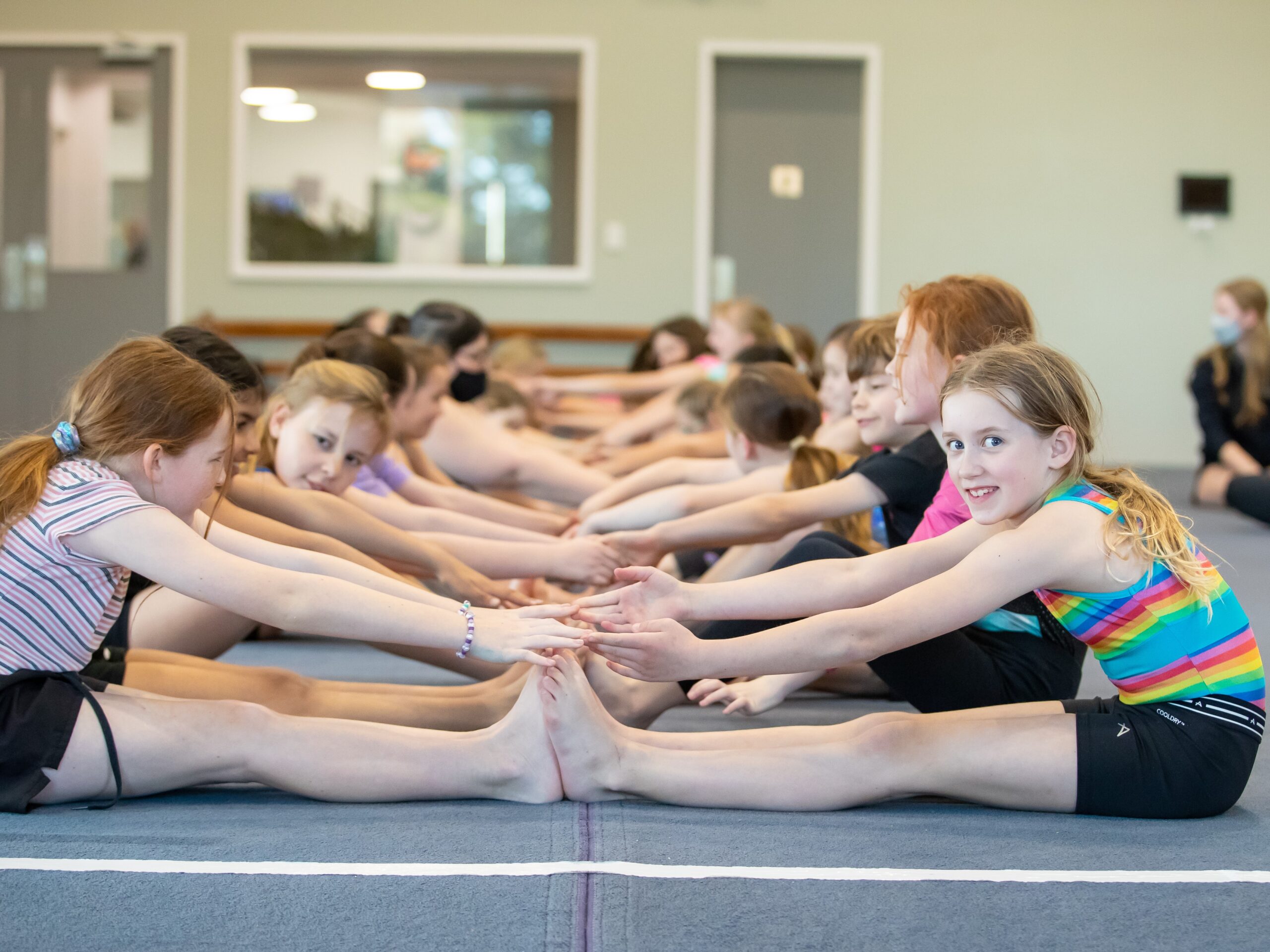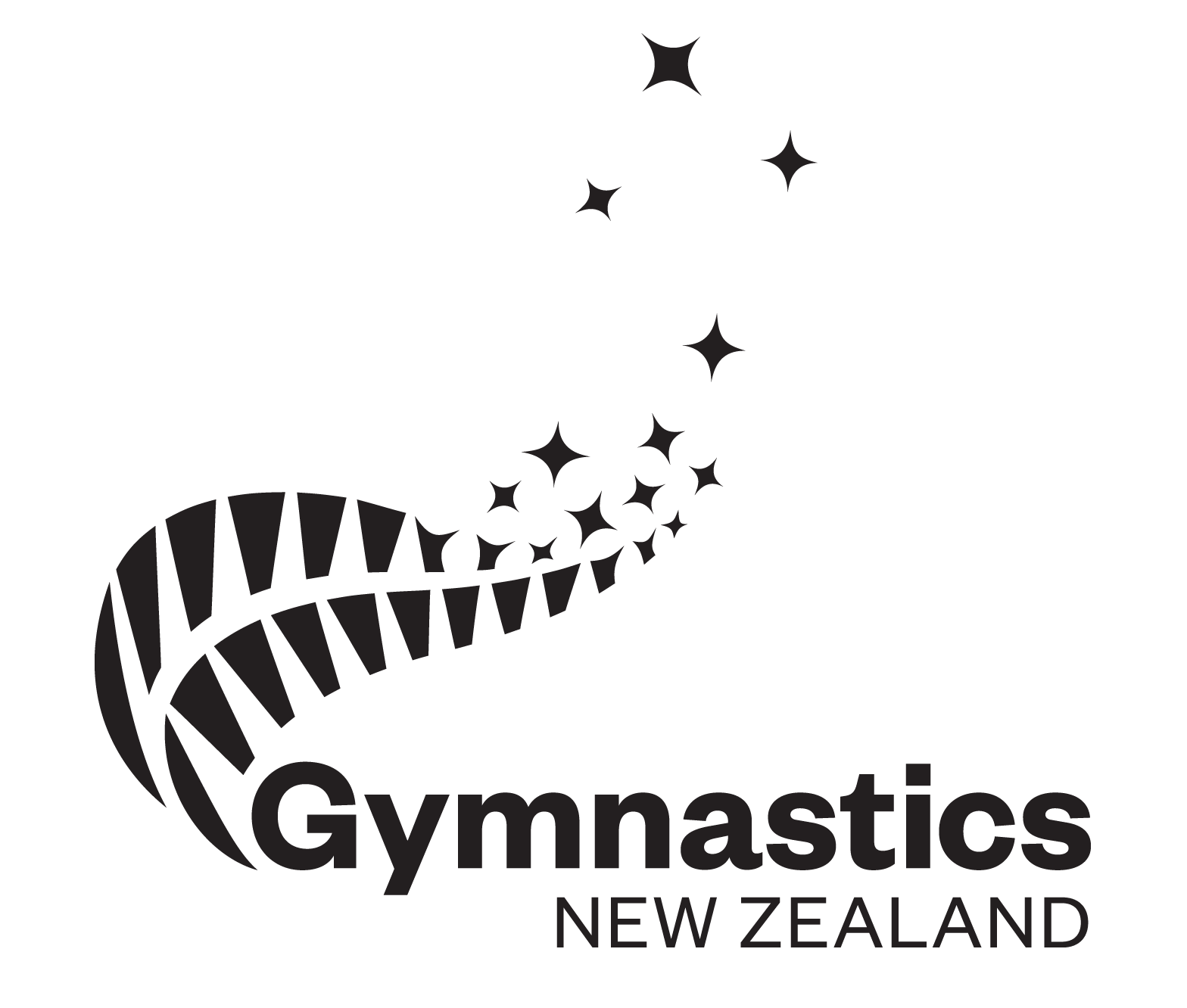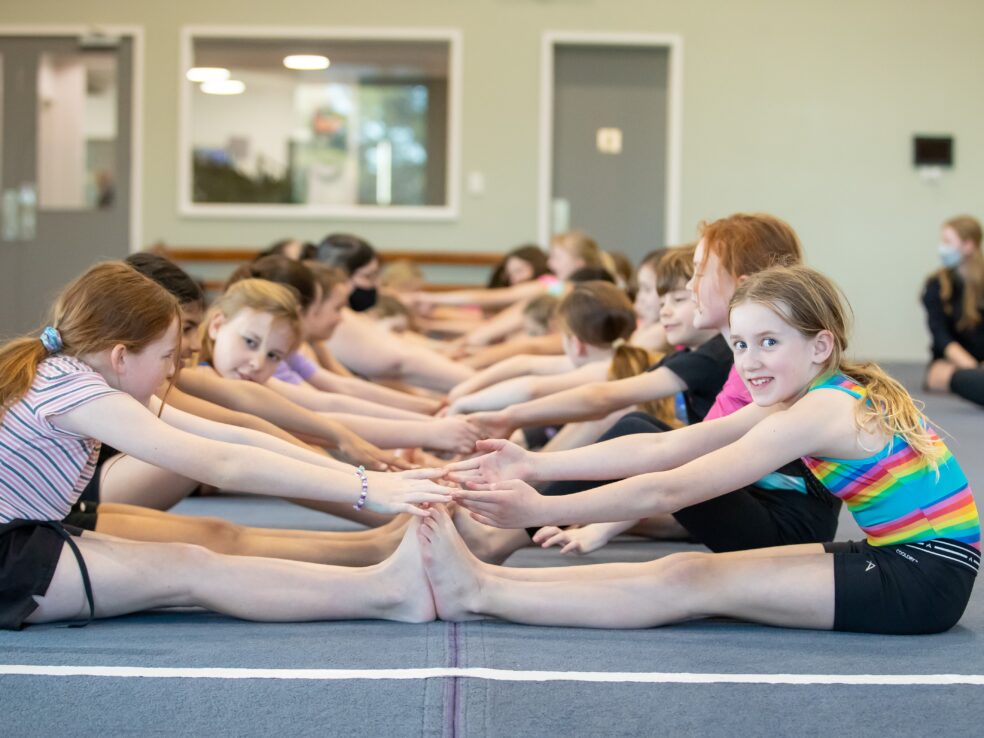Are you worried about something to do with gymnastics?
From time-to-time things happen in sport that don’t feel right. Sometimes these issues can be a sign of a serious problem, but often they turn out to be relatively minor and can be easily resolved. To help resolve these issues, Gymnastics NZ is committed to providing a clear, fair and consistent process for its members. Regardless of whether the issue is serious or relatively minor, we understand that to you, the issue is really important.

To find out about how concerns and complaints are processed, please see below.
The first step of the process is to determine if an issue is a concern or a complaint. This is to help avoid using up valuable time and resources on issues that should be quite straight forward to resolve.
What is a concern?
• Concerns are issues that people may be worried about but don’t warrant a formal complaint.
• All member clubs have an obligation to do all that is reasonable to resolve issues before they escalate to become formal complaints.
• If you have a concern, your first step should be to raise your concern with your club.
Can you raise a concern with Gymnastics NZ?
Yes, you can. If you feel you need to raise a concern with Gymnastics NZ, you can contact Gymnastics NZ’s integrity manager, who can provide guidance and support. Please email integrity@gymnasticsnz.com.
How concerns are dealt with
In most cases, Gymnastics NZ will work alongside a club to help resolve a concern.
However, Gymnastics NZ can choose to escalate a very serious concern and treat it as a complaint.
Factors that will be considered include
• the nature of the concern
• the seriousness of the concern
• who raised the concern
• the age of the person who the concern relates to
• whether the concern was raised anonymously
• whether a concern has been raised about the person before.
What is a complaint?
A complaint is a formal statement relating to an allegation of misconduct. A complaint may be made by any member of Gymnastics NZ, or a person on behalf of that member (with their consent).
Misconduct can be either minor, serious, or gross. To learn more about types of misconduct and how they relate to complaints please see section 3 below.
If the issue doesn’t qualify as misconduct, then it could well be a concern.
Making a formal complaint
A complaint must be made using the form at the top of this page. It should set out in as much detail as possible the nature of the alleged misconduct; the persons involved; the date(s) and time(s) on which the alleged misconduct occurred; the impact of the incident on the complainant and/or other persons; and what resolution is being sought.
* Gymnastics NZ acknowledges that in some circumstances it may be more appropriate for the complaint to be made via phone call or in person.
Is your issue a concern or a complaint?
From time-to-time things happen in sport that don’t feel right. Sometimes these issues can be a sign of a serious problem, but often they turn out to be relatively minor, and can be easily solved.
To help decide if the issue you are worried about is a concern or complaint please see section 1 above.
You can also read about what constitutes minor, serious and gross misconduct in section 3 below.
If you believe the matter is serious enough to make a formal complaint, more information about that process is contained below.
Making a complaint
The most straightforward and preferred way to make a complaint is by completing the complaints form at the top of this page.
Gymnastics NZ understands that in some circumstances it may be more appropriate for the complaint to be made via phone call or in person. If a complaint is made in this way, Gymnastics NZ’s Integrity Manager or appropriate staff member will fill out the complaints form on behalf of the complainant.
If you feel your issue cannot be dealt with effectively by Gymnastics NZ, or you would prefer to raise the matter with an independent body, you can contact the Sport and Recreation Complaints and Mediation Service (SRCMS).
This service is operated independently for the whole sport and recreation sector. To lodge a complaint or dispute, please call 0800 493 612.
If you have any questions on how to make a complaint, please contact integrity@gymnasticsnz.com.
Anonymous Complaints
To ensure that natural justice is observed, it is highly likely that complaints made anonymously will be dealt with as concerns. This is at the discretion of Gymnastics NZ.
What happens next?
Your complaint will be received and assessed by the Integrity Manager at Gymnastics NZ.
If the complaint is not deemed to be a Gymnastics NZ matter it will be dismissed – and you will be informed of the reasons why.
If the complaint falls under the jurisdiction of Gymnastics NZ it will be dealt with based on the severity of the issue raised.
Withdrawing Complaints
Gymnastics NZ has full discretion to proceed with a complaint regardless of whether the complaint has been withdrawn and in situations where the person who raised the complaint wishes to remain anonymous.
What is misconduct?
Gymnastics NZ’s rules state that club members and other people involved in the sport must adhere to certain standards of behaviour. If a person’s behaviour fails to meet these standards, it could be considered misconduct.
Misconduct can include any action, or inaction, that either causes harm or has the potential to cause harm. It also includes behaviour that could damage the reputation of Gymnastics NZ.
Misconduct can be either minor, serious, or gross, depending on the behaviour.
Minor misconduct
Minor misconduct is low-level misconduct. It is often non-malicious but does have the potential to have an adverse impact on people.
Serious misconduct
Misconduct can be deemed serious misconduct if it causes, or has the potential to cause, significant harm to another person, organisation, or to property. It can also be behaviour that damages a person’s reputation or brings an organisation into disrepute.
Gross misconduct
Any action or inaction that causes, or has the potential to cause, significant or very serious harm to another person, organisation, or to property is gross misconduct. Repeated allegations of serious misconduct may also constitute gross misconduct.
Examples of misconduct
• Theft, fraud, forgery, or other acts of dishonesty
• Cheating
• Harassment
• Child Abuse
• Discrimination
• Fixing, or attempting to fix, the results of a competition
• Obstructing the operation of a competition, event or meeting
• Altering or tampering with any competition equipment
• Use of profane, offensive, or improper language
• Offensive or insulting behaviour
• Being under the influence of alcohol or illegal drugs while participating
• Abusive behaviour
• Favouritism, disfavour, or bias towards an individual or team
• Breaching or failing to comply with Gymnastics NZ’s rules and regulations
• Breaching the FIG statutes, regulations or rules
• Failing to pay fines
• Poor behaviour
When can misconduct occur?
Misconduct will usually occur in a ‘gymnastics context’. This means it will usually occur while a person or persons are engaged in gymnastics activity such as a competition or meeting, related social event, or some other activity related to or directly connected with gymnastics.
Who must obey Gymnastics NZ’s conduct rules?
Gymnastics NZ’s rules apply to ‘members’ or ‘other persons’ involved in gymnastics. Members are members of clubs that are affiliated to Gymnastics NZ.
‘Other persons’ are people who are not club members but have agreed to abide by Gymnastics NZ’s rules and regulations – for example by agreeing to the terms and conditions on a competition entry form or an agreement to represent a Gymnastics NZ squad or team; or an agreement to provide services to Gymnastics NZ.
Behaviour that isn’t treated as misconduct
• Non-selection or selection to a squad or team by Gymnastics NZ
• Allegations of doping
• Disputes between board and member clubs or associate members
How to make a complaint – and what happens next?
If the behaviour you are concerned about appears to be either serious or gross misconduct you may wish to make a formal complaint.
Gymnastics NZ uses a five-tier system to help assess the seriousness of complaints and to determine what happens next.
Tier 1: Out of scope
Gymnastics NZ response: If the complaint is not within scope or the jurisdiction of gymnastics, the complaint will be rejected and the complainant informed of the reason.
Tier 2: Minor misconduct
Gymnastics NZ response: A complaint that would qualify as minor misconduct may be deemed a concern and dealt with as such. If the matter is deemed minor misconduct the member club to which it relates is responsible for finding a resolution as set out in their own policies.
All Gymnastics NZ clubs are expected to have good systems in place to resolve low level complaints. If clubs neglect their responsibilities, Gymnastics NZ will intervene.
Tier 3: Serious Misconduct
Gymnastics NZ response: A complaint that appears to be serious misconduct will be assessed initially by Gymnastics NZ. After gathering all relevant information Gymnastics NZ, in consultation with the complainant and the respondent, will decide on the appropriate way to proceed.
This can be either
- mediation (actions agreed between the parties may include mandated professional development, education, resignation, apology etc); or
- a finding of fact exercise which may include an investigation.
The complaint may be referred to Gymnastics NZ’s Sports Integrity Unit (SIU).
There are no hearings for matters referred to the SIU. All matters are dealt with on the papers (emails etc).
The SIU may impose any safeguarding orders at any stage throughout the complaints process, excluding where the complaint is in the process of being resolved by mediation or where the complaint has been resolved by mediation.
The SIU can make recommendations at any stage. The SIU can impose sanctions, excluding where complaints have been resolved through mediation.
Tier 4: Gross Misconduct
Gymnastics NZ response: Tier 4 complaints are initially dealt with using the same process as Tier 3 complaints (above).
However, Gymnastics NZ may refer complaints of this nature directly to an independent Judicial Committee.
The primary function of the Judicial Committee is to establish whether gross misconduct has occurred and what sanctions are appropriate.
Judicial Committee deliberations can involve a hearing that witnesses must attend.
Tier 5: Misconduct that may be a criminal offence
Gymnastics NZ response: This is misconduct that may be a criminal offence under New Zealand law. This includes but is not limited to
- sexual misconduct or abuse
- child abuse
- criminal charges involving child abuse or misconduct
- failing to report child abuse or sexual misconduct or abuse.
These complaints will likely be referred to the NZ Police and/or Oranga Tamariki. They may also be referred to a Judicial Committee.
Safeguarding orders
To protect the safety of its members, Gymnastics NZ can send any complaint directly to its Sports Integrity Unit (SIU) to impose immediate safeguarding orders.
For information on specific safeguarding orders that can be imposed by the SIU, please refer to the Complaints Policy.
Investigations
Investigations (or finding of fact exercises) are undertaken for tier 3 and 4 complaints by Gymnastics NZ.
Once a finding of fact has been made, a complaint is transferred to the SIU or a Judicial Committee to determine whether the complaint amounts to gross misconduct.
For complaints deemed to be gross misconduct (tier 4), the complaint is transferred to the Judicial Committee for sanction. Complaints deemed by a Judicial Committee to be serious misconduct (tier 3) will be referred to the SIU for sanction.
The role of the Judicial Committee
Complaints assessed as potentially relating to gross misconduct can be referred to an independent Judicial Committee, which will issue a finding.
A Judicial Committee “hears” a complaint by examining the evidence and then making a determination as to whether misconduct happened.
Parties involved in the complaint may present their case via papers, in person, or through a representative of their choice (including a lawyer) at a hearing.
The Judicial Committee has the power to request the attendance of any Gymnastics NZ member or their representative at any proceedings and will determine who is entitled to be present at a hearing.
The complainant and respondent are entitled to call witnesses who may be questioned on their evidence.
Appeals, Sports Tribunal, and the SRCMS
Members have the right to appeal decisions to the New Zealand Sports Tribunal.
Members can also appeal to Gymnastics NZ directly for tier 2 complaints or concerns that are being dealt with by a club if they are unhappy with the actions of the club.
Where Gymnastics NZ finds that a proper process was not followed, it will work with the club. If the club refuses to engage with Gymnastics NZ, Gymnastics NZ reserves the right to make its own complaint to the SIU or Judicial Committee.
Complaints can also be raised directly to the Sports and Recreation Complaints and Mediation Service (SRCMS).
Sanctions
In the event a complaint is upheld, the SIU or Judicial Committee has a range of sanctions available to it. For information on specific sanctions that can be imposed by either the SIU or Judicial Committee, please refer to the Complaints Policy.

